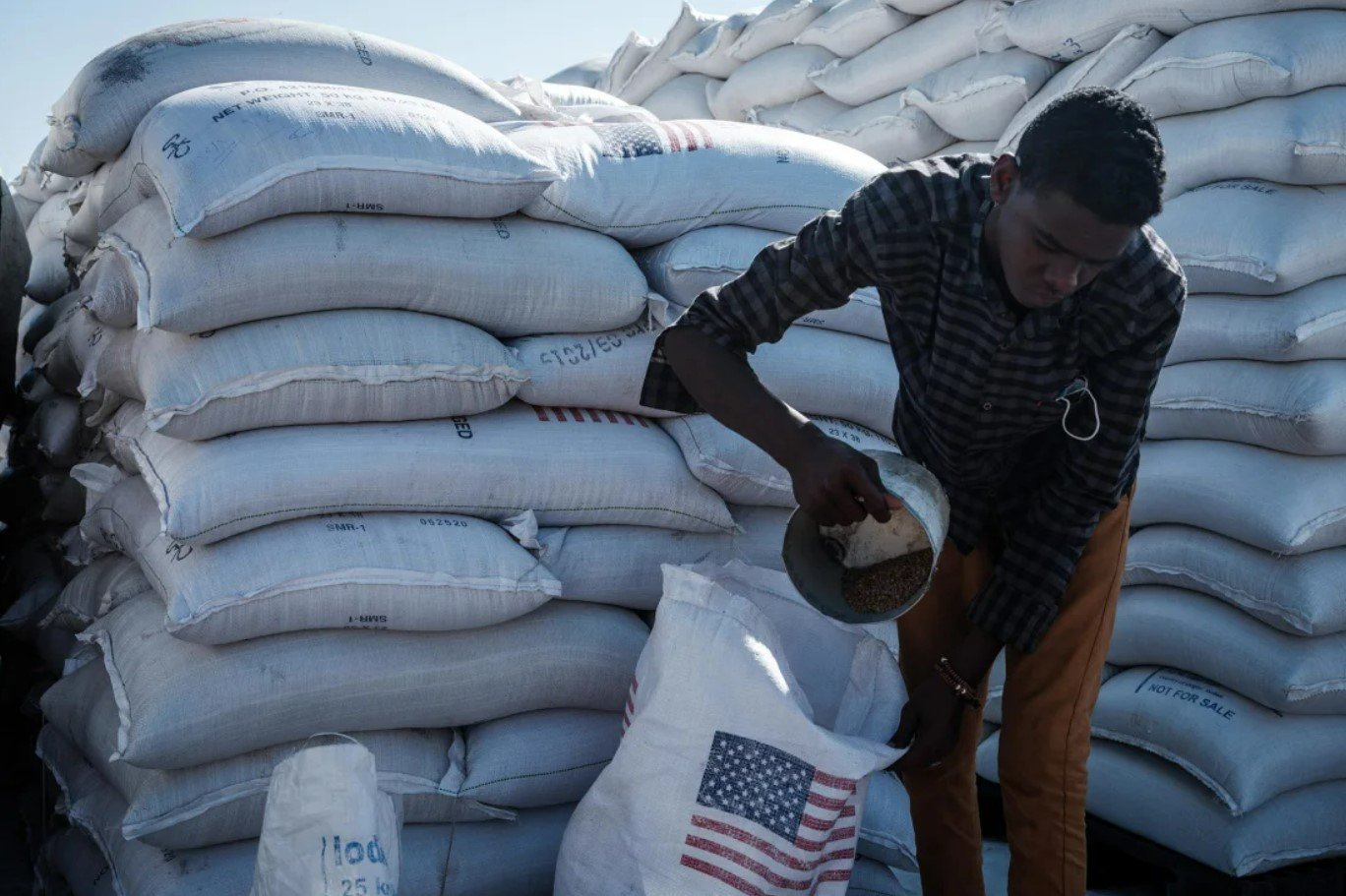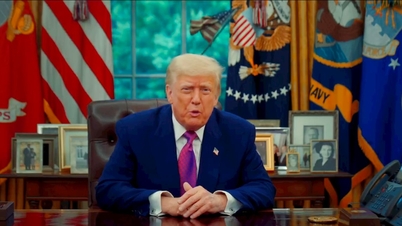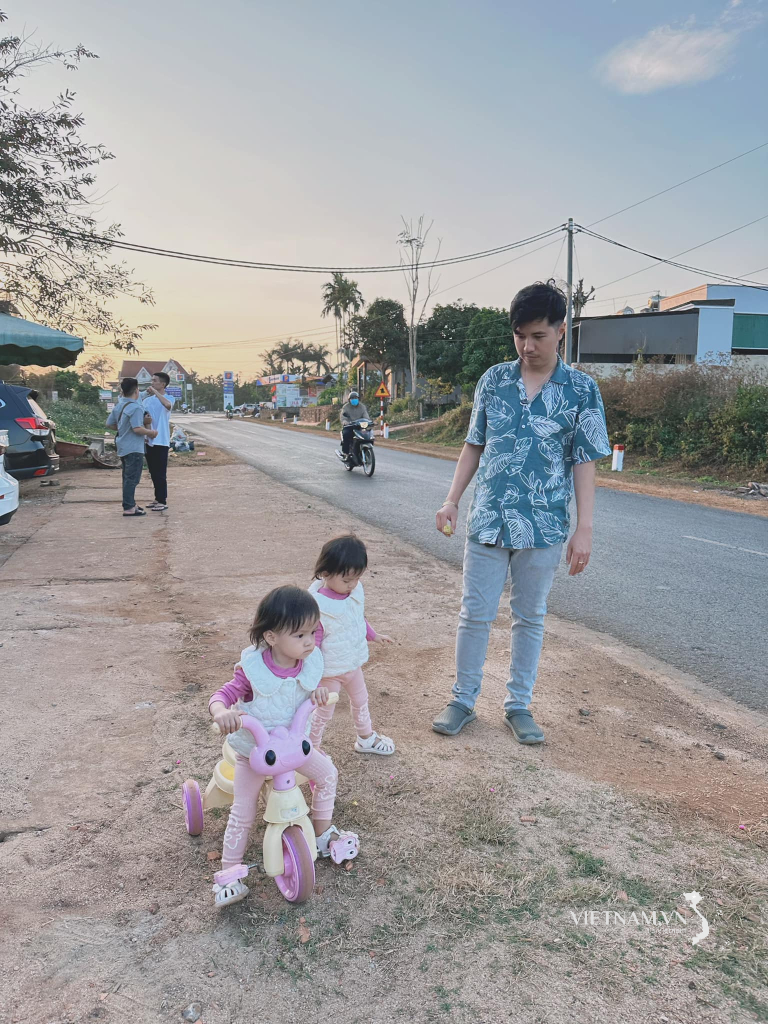(CLO) Food distribution, medical services, and many other humanitarian activities have been disrupted after the administration of President Donald Trump froze foreign aid and cut the budget of the U.S. Agency for International Development (USAID).
Clean water projects in many countries
USAID supports hundreds of water security projects in Jordan, the Democratic Republic of Congo, Ethiopia, India, and many other countries. Currently, approximately 4 billion people worldwide lack access to safe drinking water.
"Without those programs, animals die, people die, people are displaced," said Evan Thomas, a professor of environmental engineering at the University of Colorado at Boulder.
He was involved in a project in Kenya where more than 1 million people gained access to clean water thanks to 200 deep well water pumps partially funded by USAID. Currently, the program is unable to pay for maintenance and repair contracts for the pumps. "That whole program is now at risk of collapsing," he said.
"When people lack water, their livestock die, and they are under immense stress. This creates opportunities for militias to exploit and recruit," Thomas warned, referring to the growing influence of the Al-Shabaab terrorist group in Kenya. "Undermining access to food, water, and medicine globally will not make America any safer."
"People aren't just going to sit around and die of thirst. They're going to migrate. And that will increase migration pressure worldwide," he added.
In other parts of Kenya, USAID-funded projects aimed at improving care for HIV/AIDS patients are also being disrupted.
Food programs in Sudan
Jeremy Konyndyk, president of Refugees International and a former USAID official, said that U.S.-funded kitchens in Sudan have been forced to close.
This information comes as the United Nations reports that millions of families, many of whom have been displaced, are facing severe hunger due to the ongoing conflict in the country.

Food from USAID is distributed to refugees fleeing the Tigray conflict. (Photo: GI)
“Many people have been displaced, and many others are suffering from hunger and other crises. They could be severely harmed, even killed,” Konyndyk warned, highlighting the far-reaching impact on refugees in Sudan, Syria, and Gaza.
The U.S. global hunger monitoring system FEWSNET, used to track hunger levels worldwide, has also been shut down due to the Trump administration's aid freeze.
Jamie Munn, executive director of the Council of International Volunteer Agencies, stated: "USAID is the cornerstone of life-saving initiatives in famine-stricken areas like Ethiopia, Somalia, and Sudan. However, the freezing of funding has left millions without essential services such as healthcare, clean water, and shelter."
Malaria may become more common.
USAID leads a malaria control and elimination program in 24 of Africa's hardest-hit countries, including Mali, where the disease is a leading cause of death.
This agency provides funding for antimalarial drugs, testing kits, and insecticide-treated mosquito nets, helping to reduce disease rates and save many lives.
Malaria still claims approximately 600,000 lives each year, mostly children under five years old. However, thanks to the U.S. President's Malaria Initiative, run by USAID, the mortality rate has halved since the program was launched in 2006.
Afghanistan faces serious consequences.
According to a source, life-saving aid programs for 145,000 vulnerable women in Afghanistan have been frozen. These programs provided safe housing, mental health counseling, medical care, and vocational training amid the Taliban's increasing control over women.
Meanwhile, more than 6 million Afghans are surviving on "bread and tea," according to Hsiao-Wei Lee, Director of the World Food Programme (WFP) in Afghanistan. According to the United Nations, last year the United States contributed 54% of the WFP's funding in Afghanistan.
Aid to Ukraine has been interrupted.
USAID funded backup heating systems in 14 regions of Ukraine, helping schools and hospitals function during the conflict with Russia. However, the official USAID Ukraine account on social media platform X has now stopped updating.
The agency also provides equipment to energy workers, such as in the city of Odessa, which was recently affected by a major attack on the power system.
According to non-profit organizations in Ukraine, funding for food security and rehabilitation programs for war veterans has also stalled.
USAID also funds programs that help thousands of children continue their education and support those psychologically affected by the war. In addition, USAID plays a crucial role in maintaining the operation of Ukrainian media outlets.
"These grants have become a cornerstone in helping media outlets maintain operations, in the context of an unrecovered advertising market...", the Humanitarian and Information Policy Committee of the Ukrainian Parliament stated last week.
Instability on the Venezuela-Colombia border.
In Colombia, USAID operates several key programs, including anti-drug efforts, emergency food assistance, and forest conservation.
Organizations working on the ground have expressed concern about the abrupt cuts in aid, especially as the country faces escalating violence and a humanitarian crisis in Catatumbo – a strategic area for drug production.
Non-governmental aid workers in Latin America have compiled a list of USAID projects designed to combat immigration and the influence of criminal gangs. However, these programs have now been suspended in Colombia, El Salvador, Guatemala, and Honduras.
The US funds 47% of global humanitarian aid.
The impact of freezing aid is not limited to a few countries, but could have a global effect.
"I think the entire humanitarian system could collapse because we fund about 40% of it," a USAID official said. According to the United Nations, the United States contributes about 47% of total global humanitarian aid.
Although USAID accounts for less than 1% of the U.S. federal budget, this organization, founded in 1961, is the world's largest provider of humanitarian aid.
Ha Trang (according to USAID, CNN)
Source: https://www.congluan.vn/nhung-tac-dong-tren-toan-cau-khi-my-dong-bang-vien-tro-nhan-dao-post333176.html



![[Image] Central Party Office summarizes work in 2025](/_next/image?url=https%3A%2F%2Fvphoto.vietnam.vn%2Fthumb%2F1200x675%2Fvietnam%2Fresource%2FIMAGE%2F2025%2F12%2F18%2F1766065572073_vptw-hoi-nghi-tong-ket-89-1204-jpg.webp&w=3840&q=75)




























































































Comment (0)